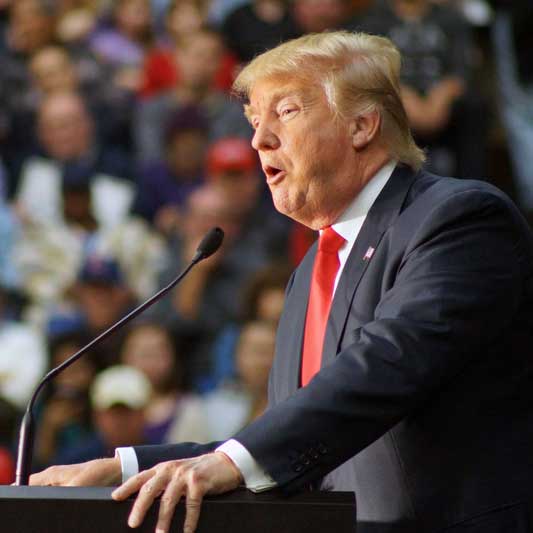Donald Trump, the president-elect, unveiled plans on November 25, 2024 to levy significant tariffs on imports from Canada, Mexico, and China – a move that has reverberated through global markets and elicited rapid responses from world leaders. Through his social media platform, Truth Social, Trump announced a 25% tariff on all products from Canada and Mexico, attributing this decision to concerns over illegal immigration and drug trafficking, especially fentanyl. A further 10% tariff on Chinese goods was also unveiled, with Trump blaming China for not adequately controlling fentanyl precursors.
Canadian Prime Minister Justin Trudeau quickly reached out to Trump following the announcement, drawing attention to the strong economic bond between the US and Canada. Trudeau reminded Trump that 60% of U.S. crude oil imports are sourced from Canada, underlining the possible economic impacts of such tariffs on both countries. He visited Mar-a-Lago and met with Trump on Friday, November 29.
Canada’s ambassador to the United States mentioned on Sunday that Prime Minister Trudeau effectively conveyed to President-elect Donald Trump and prominent Cabinet nominees that it is unjust to categorize Canada alongside Mexico regarding the issues of drug and migrant flows into the U.S.
Kirsten Hillman, Canada’s representative in Washington, shared with The Associated Press in an interview that Trudeau’s dinner with Trump on Friday played a crucial role in persuading Trump to reconsider the proposed tariffs on all goods from Canada, a key trading partner.
Hillman was present at Trump’s Mar-a-Lago club in Florida, seated at a nearby table to both Trudeau and Trump.
These planned tariffs are directed at three of America’s biggest trading partners, collectively responsible for over a third of U.S. international trade. In 2023, these countries bought over $1 trillion in U.S. exports and provided nearly $1.5 trillion in goods and services to the United States.
Business leaders have voiced their worries about the economic consequences of these actions. Flavio Volpe, the president of Canada’s Automotive Parts Manufacturers’ Association, suggested that Trump’s announcement could be a negotiation strategy, highlighting the interconnected nature of U.S.-Canada trade relations.
The Chinese embassy in Washington, D.C., reacted to Trump’s charges concerning fentanyl trafficking. Embassy spokesman Liu Pengyu stated that China had updated U.S. officials on progress in narcotics enforcement operations and underscored the mutual advantages of U.S.-China trade relations.
Following Trump’s announcement of impending import tariffs from Mexico, Canada, and China, international financial markets displayed significant volatility. The U.S. dollar gained strength, leading to reductions in the Mexican peso, Canadian dollar, and Chinese yuan. Equity markets in Europe and Asia witnessed downturns, with the Stoxx Europe 600 losing 0.66%, Japan’s Nikkei 225 dropping 0.8%, and South Korea’s KOSPI decreasing 0.6%. Contrarily, U.S. stock markets displayed resilience; the S&P 500 rose 0.5%, nearing record highs, while the Dow Jones Industrial Average increased by 81 points (0.2%), and the Nasdaq Composite gained 0.5%. These shifts reflect investor uncertainty regarding the potential economic impact of the proposed tariffs and the probability of their implementation.
The proposed tariffs could infringe upon the United States-Mexico-Canada Agreement (USMCA) signed in 2020. Although Mexican officials did not provide an immediate response to this announcement, they have previously indicated readiness to impose retaliatory tariffs if necessary.

